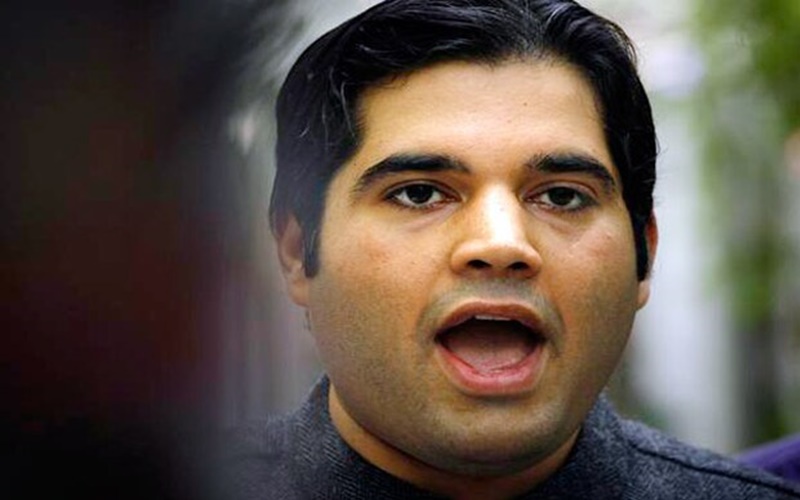Times of India has quotes my post on Varun Gandhi today. Well, I know media-wallas have to find stories and sell. It was good to see my name in a prestigious paper but the intent ascribed was not too flattering. I believe in peace and reconciliation between India and Pakistan as the only way forward for South Asia. And, I will condemn extremism wherever it raises its ugly head – in India, in Pakistan and elsewhere.
What is good is that at least we – the citizens/bloggers – are being heard. (RR)
Elections, the new e-conflict zone for Indian, Pak netizens (PTI – in TOI today)
NEW DELHI: It’s a virtual war in the cyber space. As the election scene hots up in the country, netizens especially in Pakistan are watching the scene keenly and letting out their views on all issues ranging from elections, candidates to Varun Gandhi and his controversial speeches.
The Election 2009 has transcended the sheafs of news print and television channels and found its way into the blogosphere in a big way. The elections have created a buzz especially among bloggers in Pakistan with lot of discourse on issues of identity and religion and Varun Gandhi’s speech in Pilibhit.
Varun Gandhi’s speech has drawn an ire from Pakistan’s netizens who are also bringing up the memories of partition and the hostility between the South Asian rivals.
Raza Rumi, a blogger with Pakistan Tea House, a prominent Pakistani weblog, explained, why Varun Gandhi has virtually hijacked the Indian election discourse in Pakistan.
“Varun Gandhi’s remarks on Muslims concern us as it only exposes us to brigades of hatred, communalism and violence across the border. The fissures in the secular Indian democracy get even more evident when such speeches are delivered,” his blog says.
The underlying fear of most Pakistani bloggers is, whether the ascent of Varun Gandhi in Indian politics will herald a much more belligerent version of religion-based politics. Close on the heels of that fear is the realisation that the speech emanates from a Gandhi, albeit an estranged one.
Ali A Rizvi, a freelance writer based in Canada writes in his blog, “In the Varun Gandhi videos, Hindu extremist groups like the Taliban-inspired anti-state, anti-woman Sri Ram Sena may feel as if they’ve found a high-profile voice: Varun is the grandson of late Prime Minister Indira Gandhi, and the great-grandson of Jawaharlal Nehru, India’s first prime minister, a declared secularist and atheist who couldn’t have been more moved from his descendant’s crazed religion-fuelled nationalist diatribes.”
The condemnation of Varun Gandhi and criticism of Indian secularism has brought angry reactions from Indians.
One Indian who identifies himself as ‘Top Gun’ refuted the criticism citing the democratic institutions in India. “The Declaration of American Independence was signed centuries ago, and yet America has had its first black president only now.”
“Like America, India has also a lot of past baggage and social complexities to overcome before it can be a truly pluralist country. But like the USA, we have the right constitution in place and are moving in the right direction. Having the right constitution is the single most important thing,” he writes.
He goes on to say that the existence of democratic institutions “have served us well in the past, and there is no reason to believe they are not going to do in the future.”
Others like Alamsha Karnan, a Muslim seeks to quash Pakistan’s contention that India’s Muslim community are a discriminated lot.
“I discovered the meaning of my faith – Islam, from Hinduism. Indian Muslims had to pay and continue to pay a heavy price for partition but they have gained tremendously in terms of essential skills required to co-exist and survive in a multi-cultural, multi-religious society.”
Contending that the community “has reached the critical mass for self-reliance and alignment with the Hindus”, he says that Indian Muslims will play a “very important role in transforming the region.”



